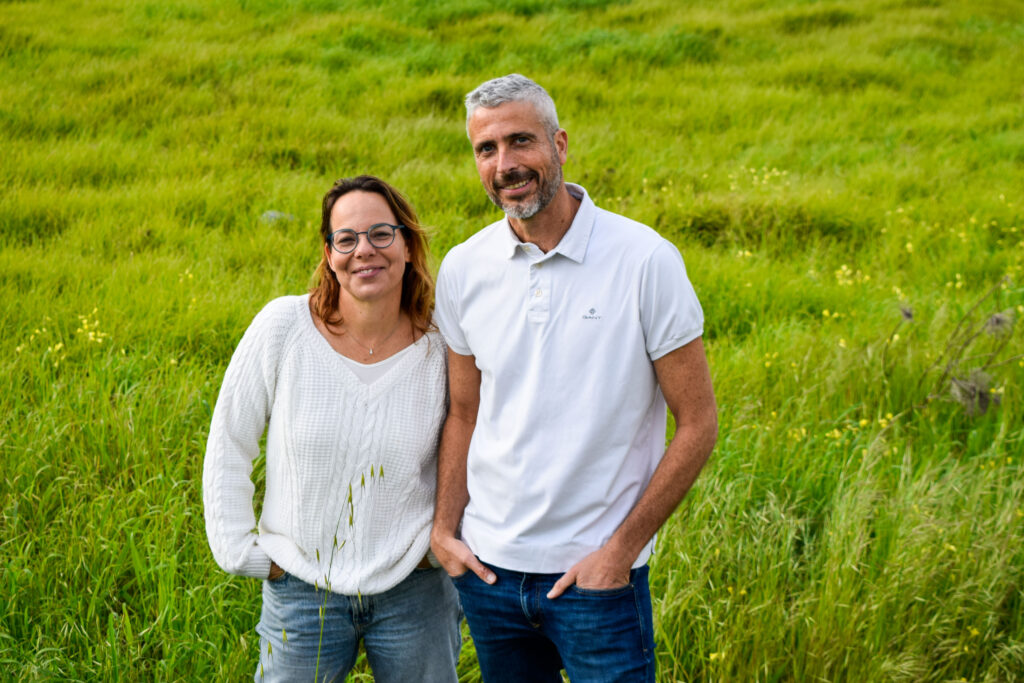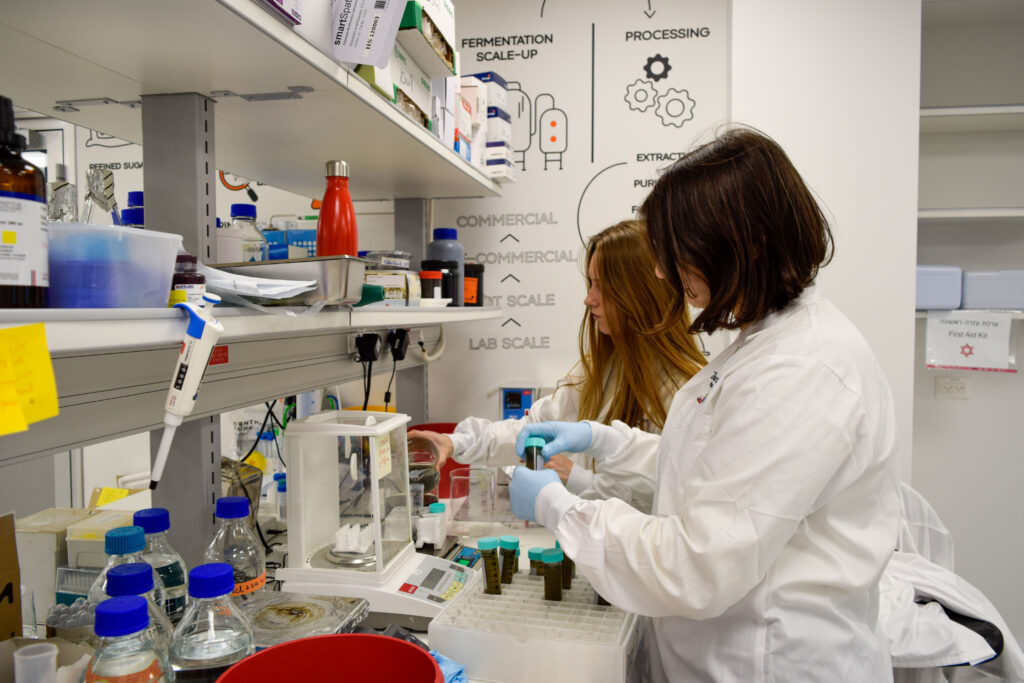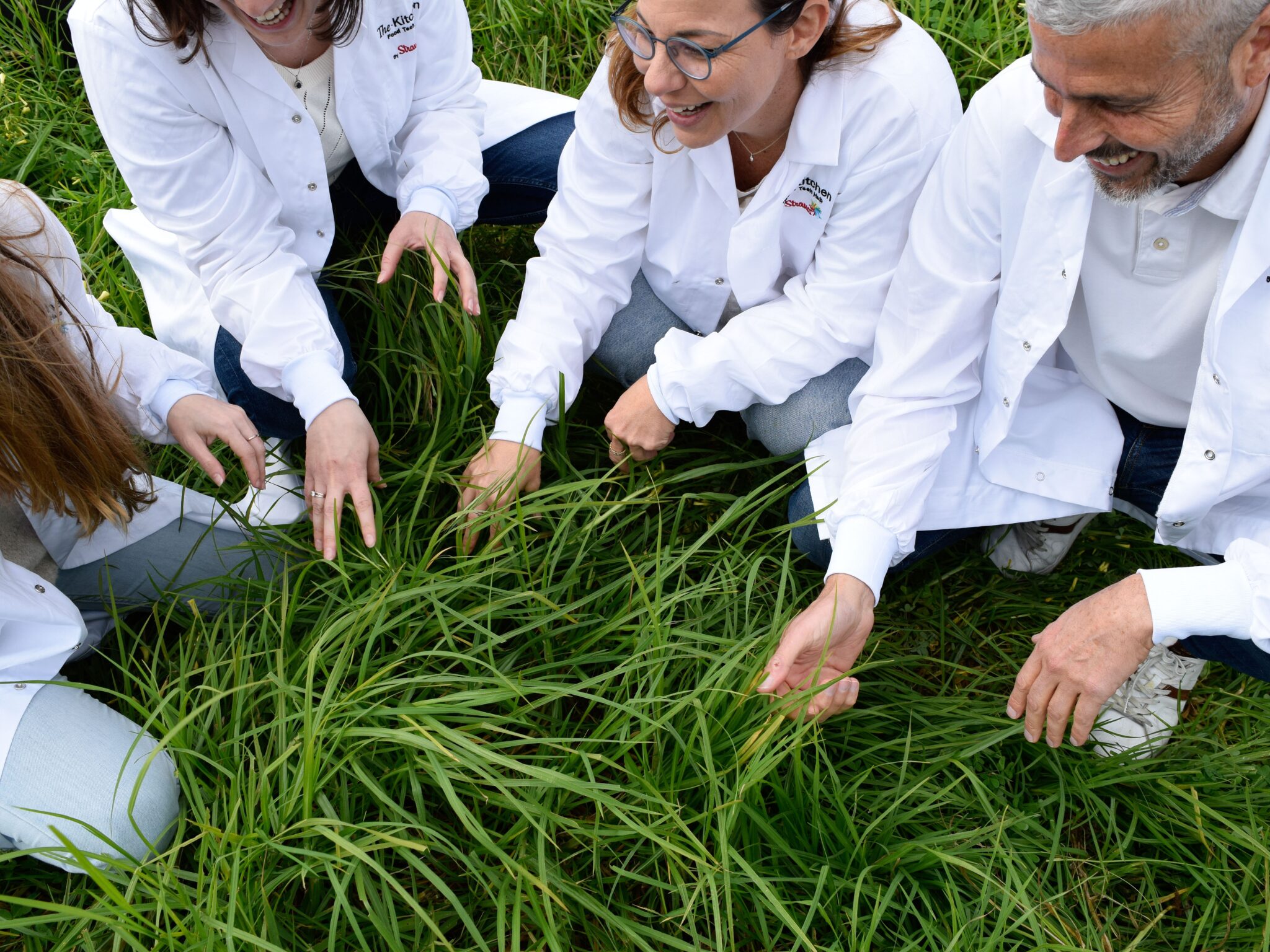‘World’s Most Abundant Protein’ Cheap Enough to Replace Soy: Upcycled Rubisco Protein Startup Day 8 Nabs $750K Pre-Seed
5 Mins Read
Israeli startup Day 8, which produces upcycled plant-based proteins from Rubisco, has secured a pre-seed investment of $750,000 from food tech incubator and investor The Kitchen Hub.
Day 8 has closed a $750,000 pre-seed financing round and formed a partnership with The Kitchen Hub, a food tech incubator and investor from Israel, which will help the startup produce plant proteins from agricultural waste.
Day 8’s USP is Rubisco, which is found in green crops like duckweed and said to be the most abundant protein on the planet. Unlike most plant proteins that are extracted from the seeds, Rubisco is derived from the leaves. The company is taking it a step further by making use of discarded crop leaves as the raw material, which resolves “economic efficiency”.
“Within the food industry, Rubisco is the most craved plant-based protein due to its superior qualities and abundance, and it has been a focus of The Kitchen for a while,” said Amir Zaidman, chief business officer at The Kitchen Hub. “When we met Day 8, we felt that this is the right team with the right technology to materialise the enormous business potential of Rubisco protein and create a more sustainable global food system.”
The funds will enable the startup to scale up to pilot production and carry out proof-of-concept work with what co-founder and CEO Daniel Rejzner described as “a long list of food manufacturers that have signed up to try the product”.
The multi-pronged benefits of Rubisco

Founded in July 2023, Day 8 is the brainchild of Rejzner and Dana Marom. Marom, who is the company’s chief technology officer, is a food manufacturing veteran with previous experience in soy protein production and the medical cannabis sector. Rejzner comes from the CPG space, and previously founded Zollo, an app helping consumers compare grocery prices.
The name comes from the Biblical belief that the world was created in seven days. On day eight, it becomes humans’ “responsibility to protect and nurture it”. This underlines the startup’s goal to create more scalable, sustainable and functional plant-based products for the mass market.
This is where Rubisco, possibly the most abundant enzyme on the planet, comes in. You’ll find this in all green plants: alfalfa, broccoli, spinach, kale, you name it. Nutritionally, it is a complete protein, with high amounts of essential amino acids, resulting in an amino acid profile similar to beef, egg whites, and dairy proteins like whey and casein. It’s also rich in vitamins, minerals, antioxidants and micronutrients, and easily digestible, a major plus point in the gut wellness era.
It boasts multiple culinary benefits too, with foaming, gelling and emulsification properties that can be key to many foods, including plant-based meat and dairy products, as well as baking and functional foods. Moreover, the enzyme is responsible for carbon fixation and has been targeted in studies looking to increase crop yields, which represents its positive potential to produce climate-friendly foods that preserve food security.
Its omnipresence means this is a naturally available source of plant protein everywhere in the world. All of us have eaten a lot of Rubisco without even knowing it, especially since it has very low allergenicity.
Overcoming the challenges of Rubisco protein production

It’s not like the plant-based industry hasn’t tried to work with Rubisco before. One of the world’s leading alternative meat makers, Impossible Foods, experimented with alfalfa-derived rubisco in its early years. Speaking to the New Yorker in 2019, founder and then-CEO Pat Brown explained: “For a year, our prototype burgers used RuBisCo, and it worked functionally better than any other protein, making a juicy burger.”
In fact, the company filed a patent in 2015 describing the use of Rubisco as a binding agent, as well as an example of Rubisco isolation and purification. Brown predicted that the ingredient could help meet the world’s protein requirements using just 3% of the world’s land. The company eventually went to market with soy protein, of course, but mainly because no one was producing Rubisco at scale.
And that is because it’s hard to do so. The enzyme needs to be isolated from indigestible cellulose, but isn’t easy to extract in the first place, given it is enclosed in tough cell walls of leaves. It also needs a large amount of biomass to be extracted as a protein source for food, which is where crops like alfalfa, moringa, sugar beets and duckweed come in. But even then, these leaves tend to rot in storage. This is before you tackle the removal of chlorophyll and other molecules to produce a colourless compound without any bitter or vegetal notes.
Day 8 says its extraction technology can make the “most taste-neutral protein available today”. And to make things more affordable, it eliminates the cost of growing raw materials – green plants, in this case – by upcycling discarded leaves from existing crops. While Rejzner remained tight-lipped when asked what plants the startup is using, he offered: “Our process is cropagnostic, so we are able to work on multiple crops.”
In the long term, it claims products made from its Rubisco protein will be so cheap that they could replace soy protein entirely. “We estimate that approximately 2.7 trillion tons of discarded leaves can be upcycled annually,” he explained. “This vast resource has the potential to produce protein equivalent to 11 times the entire global soy protein consumption without requiring any incremental land, much less water, or energy.”
Expanding on this, Rejzner told Green Queen: “Initially, as our production scale is small and production costs are higher, the product will be similar to other functional ingredients. As our production scale gets larger, the cost will be at par with bulk soy protein powder.”
He added that Day 8’s protein has a wide range of applications. “Most promising are protein-enhanced products, whether these are bars, dairy products, plant based dairy, etc.”
With the plant-based world still reeling from post-pandemic headwinds, and cultivated meat weathering its own legislative storm, could Rubisco prove to be a viable solution for companies, consumers and investors alike? Day 8 will hope so, armed with the backing of The Kitchen Hub, which has 26 companies under its portfolio and has helped them raise over $345M to date.
It’s a trend identified by other companies too, not least California’s Plantible Foods, which has made significant strides with its duckweed-derived Rubisco. In 2021, it raised $21.5M in Series A funding to build a commercial-scale production facility and launch its nutrient-dense Rubi Protein. Currently, the startup is focusing on replacing eggs in applications like baking and pasta-making with Rubi Whisk, and providing a cleaner-label binder to plant-based meat with Rubi Prime.
Dutch startup Rubisco Foods is also tapping duckweed for its protein, while New Zealand’s Leaft Foods (which has secured $15M in investment) uses alfalfa as a base.



